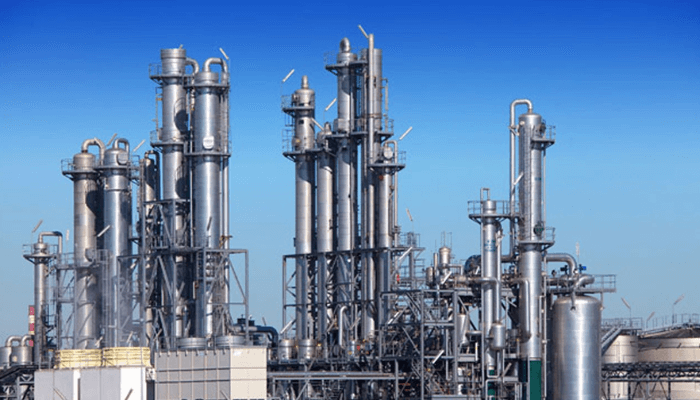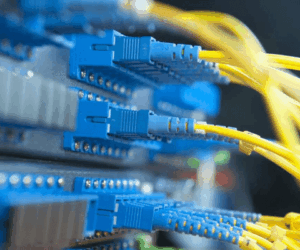Nigeria’s fledgling refining industry has urged lawmakers to impose a sweeping 25 percent tariff on imported petrol, warning that without urgent protection from what they describe as ‘dumping’ of foreign fuel, billions of dollars of domestic investments could be stranded.
The Crude Oil Refinery Owners Association of Nigeria (CORAN), representing both modular and conventional refinery operators, presented the proposal to the Senate Committee on Downstream Petroleum Sector in Abuja recently. The association argued that refiners are struggling to compete with cheap imported petrol, much of it from Russia and other markets, sold in Nigeria below what it costs to produce locally.
According to CORAN, Nigeria currently has over one million barrels per day of installed refining capacity, though only about half of that is operational. In addition to the 650,000-barrel-per-day Dangote Refinery, more than 40 modular and conventional projects have been licensed across the country, with a combined potential of 1.75 million barrels per day.
Despite this, the nation still imports nearly a third of its petrol needs, largely due to supply bottlenecks, high port charges, and what operators say is unfairly priced foreign competition.
Dumping allegations, price gaps
CORAN pointed to data from global oil pricing agency Argus showing that ex-depot petrol prices in Nigeria are currently below import parity costs, meaning imported fuel is being sold at a loss compared to its delivered cost. This, the group said, is a textbook case of dumping, where foreign suppliers offload excess product into Nigeria at below-market rates, undercutting domestic production.
“Delivered costs of gasoline into West Africa stand at about N906 per litre, while current ex-depot prices hover around N816 per litre,” the association noted. “That negative margin reflects dumping. Without protection, no refinery here can survive.”
The association also drew attention to international precedents. The World Trade Organisation (WTO)’s anti-dumping rules allow governments to impose countervailing tariffs when imports threaten local industries. Countries from the United States to Indonesia and Argentina have previously used such measures to shield domestic refineries from distortions in global oil markets.
Read also: US refiners shift to Nigeria’s crude on geopolitics
Billions at stake in refinery investments
Domestic refining, CORAN stressed, is not just an industrial aspiration but a macroeconomic necessity. Refining locally keeps jobs, stabilises the naira, supports energy security, and reduces Nigeria’s exposure to foreign exchange volatility.
Operators say the scale of investment already committed to Nigerian refining runs into billions of dollars. Modular plants, often developed by indigenous entrepreneurs, have sprung up in oil-producing states, while larger players like Dangote Industries and the state-owned Nigerian National Petroleum Company Limited (NNPCL) are building mega-refineries.
“The risk now is that without government intervention, these investments will be stranded,” CORAN’s submission warned. “Nigeria will remain dependent on imports despite having the infrastructure and crude oil reserves to be self-sufficient.l,” CORAN noted.
Petrol Prices in West Africa: Nigeria at the Bottom of the Chart

One of CORAN’s strongest arguments for protective tariffs is the unusually low petrol prices Nigerians currently pay compared to their neighbours in West Africa.
Data presented to the Senate Committee show that, at an average of $0.54 per litre, Nigeria has one of the cheapest unsubsidised petrol prices in the world, lower than Ghana ($1.37), Cameroon ($1.50), and even below the United States ($0.92). Only India, with its vast market and heavy government intervention in energy, comes close at $1.16 per litre.
The disparity is even more striking when taxes are stripped out. Nigeria’s pump price before taxes is about $0.53, compared with $1.19 in Ghana and $1.31 in Cameroon.
In the Netherlands, one of Europe’s highest-taxed markets, the ex-tax petrol price stands at $1.67, more than three times Nigeria’s rate
Policy gaps and PIA
At the heart of the refiners’ frustrations is the implementation of the Petroleum Industry Act (PIA), passed in 2021 to overhaul regulation in the oil and gas sector. While the Act contains provisions designed to support domestic refining, CORAN says regulators have failed to enforce them.
Section 109 of the PIA, for instance, enshrines a Domestic Crude Supply Obligation, requiring oil producers to make crude available for local refining before exports. Yet many refiners continue to struggle to secure adequate supply, with some modular plants operating at less than 10 per cent of capacity.
Similarly, Section 317 of the Act empowers regulators to restrict imports and encourage backward integration in refining. CORAN argues that this clause should be amended to introduce a flat 25 percent tariff on all petrol imports, ensuring a level playing field for domestic operators.
Port costs and crude pricing
While tariffs are the most visible part of CORAN’s demands, refiners also want relief from high port charges imposed by the Nigerian Ports Authority (NPA) and the Nigerian Maritime Administration and Safety Agency (NIMASA).
According to the group, charges for discharging crude at domestic refineries are three times higher than the fees for loading crude at export terminals.
“This creates a perverse situation where it is cheaper to export crude and import refined products than to refine locally,” CORAN said. “That must change if Nigeria is serious about industrialisation.”
Another flashpoint is crude pricing. Refiners say they are often forced to pay a premium of about $3 per barrel above the official price used for royalty calculations. This not only raises costs for local operators but also represents a tax loss for Nigeria, as royalties are computed on a lower benchmark. CORAN is asking lawmakers to mandate that local crude sales be priced at the same official rate used for royalties.
Comparative lessons from abroad
The refiners’ plea comes against the backdrop of global examples where governments acted decisively to prioritise domestic refining. In the 1970s, the United States imposed an export ban on crude to guarantee local supply, while countries like Indonesia and Argentina introduced restrictions in the 2000s to ensure their refineries had feedstock.
Most of the world’s top oil producers today import only a fraction of their petroleum product needs. Saudi Arabia, Russia, Iran, and Iraq, for instance, meet nearly all of their domestic demand from local refining. Nigeria, by contrast, imports more than 30 percent of its requirements despite being Africa’s biggest crude producer.
Low petrol prices, high risk
Ironically, Nigeria currently enjoys some of the world’s lowest unsubsidised petrol prices, even after accounting for taxes. At around $0.55 per litre, pump prices in Nigeria are lower than in Ghana, Cameroon and far below the global average.
But refiners warn that such low prices come at a cost as they are sustained by imports rather than domestic production. They risk hollowing out Nigeria’s refining base.
As one industry executive put it, “Cheap petrol today may mean no refining industry tomorrow. If we kill local refineries now, the country will be back to subsidy crises and forex shortages within a few years.”
What’s next
Lawmakers on the Senate Committee acknowledged CORAN’s presentation and pledged to review the tariff proposal alongside other amendments to the PIA.
Industry insiders say the debate will test Nigeria’s willingness to choose long-term industrial policy over short-term consumer relief.
For now, the refining sector hangs in the balance. The Dangote Refinery has ramped up to 550,000 barrels per day and already meets Nigeria’s jet fuel and diesel needs, turning the country into a net exporter of those products. Yet smaller refiners fear they may be priced out of the market before they ever reach scale.









